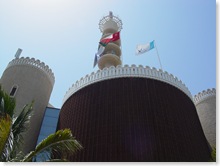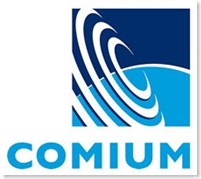Zain announced plans yesterday to bring its mobile banking service Zap, to all of its 22 operations across Middle East and Africa, with the initial programme being launched in Kenya, Tanzania and Uganda.
Zain has overcome regulatory hurdles in to launch the Zap M-banking service Kenya, and will compete with Safaricom’s M-Pesa service which has five million registered users
The Kuwaiti operator has partnered with leading international and regional banks including Citigroup and Standard Chartered to launch the mobile banking service in the three East African countries.
The service will allow Zap users across Kenya, Tanzania and Uganda to use their mobile phone to pay bills for goods and services, make remittances to other mobile users or bank accounts, top up airtime, send airtime to other Zain customers within the three countries, and to manage their bank accounts.
“With a potential customer base of over 100 million people in Kenya, Tanzania and Uganda, many of whom have never had access to formal financial services, we believe Zap will reshape the future of banking in Africa,” stated Saad Al Barrak, CEO of Zain Group.
With yesterday’s launch, Zain has overcome some earlier delays which it faced in gaining regulatory approval for its banking service in Kenya. Earlier this month, Zain Kenya’s CEO Rene Menza stated that the Central Bank was holding up the award of the banking licence to Zain, and as a result the operator was considering legal action, according to local news reports.
Now that Zain has the green light to launch Zap in Kenya, it will face strong competition from market leader Safaricom which not only has market share of 80 per cent, but its highly successful M-Pesa service has been the flagship mobile remittance and banking service in Africa, and has just hit five million registered users. Transactions in Q308 amounted to KES9.6 billion (US$135 million).
Zain, which is the fourth largest mobile network in the world by geographic presence, has not announced when it plans to extend the service to its other subsidiaries.
Image courtesy of GSMA and Decisive Media
Related stories:





 As the February issue of Comm. was going to print, US operator Sprint Nextel announced the axing of 8,000 jobs at the operator, adding to the mounting toll of telecoms redundancies. Combined with the 4,000 positions the challenged CDMA/WiMAX/iDEN operator axed in January 2008, the numbers place it on par with fellow US provider AT&T, as telecoms outfits that have announced significant job cuts over the past 13 months.
As the February issue of Comm. was going to print, US operator Sprint Nextel announced the axing of 8,000 jobs at the operator, adding to the mounting toll of telecoms redundancies. Combined with the 4,000 positions the challenged CDMA/WiMAX/iDEN operator axed in January 2008, the numbers place it on par with fellow US provider AT&T, as telecoms outfits that have announced significant job cuts over the past 13 months.

